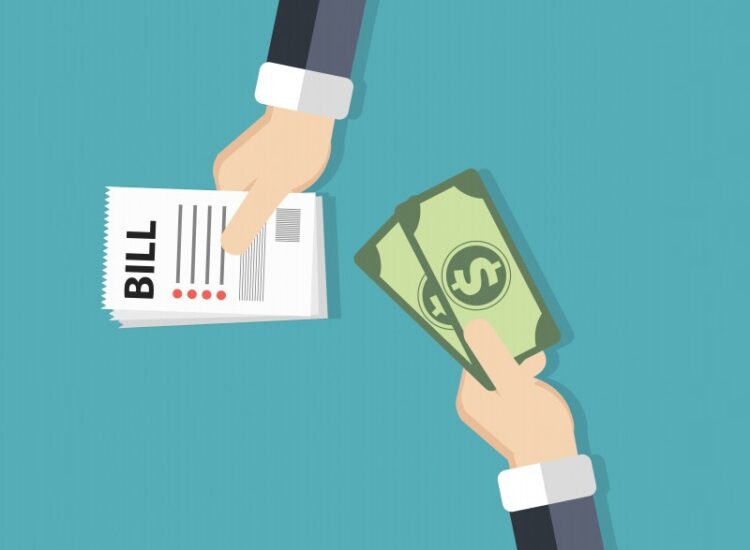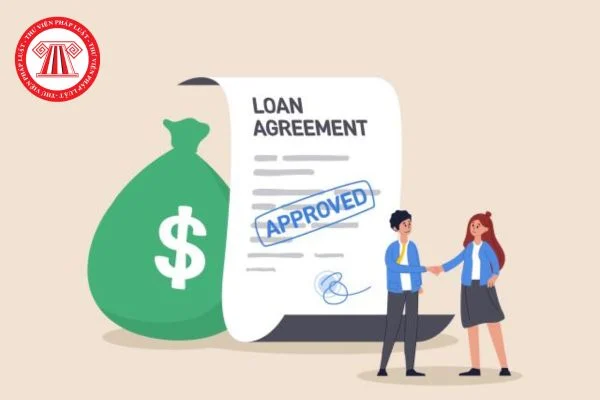The cost of higher education can be daunting, leaving many students struggling to navigate the complexities of financing their education. A fixed rate student loan offers predictability in repayment, but the total cost can still be substantial, especially considering fluctuating interest rates and varying loan terms. This guide clarifies the intricacies of fixed rate student loans in 2024, helping you make informed borrowing decisions.
Toc
- 1. Understanding Student Loan Interest Rates in 2024
- 2. Federal vs. Private Fixed Rate Student Loans: A Detailed Comparison
- 3. Related articles 01:
- 4. Choosing the Best Fixed Rate Student Loan for Your News
- 5. Addressing Common Concerns and FQAs About Fixed Rate Student Loans
- 6. Utilizing a Student Loan Calculator and Other Resources
- 7. Conclusion
- 8. Related articles 02:
Understanding Student Loan Interest Rates in 2024
The landscape of student loan interest rates in 2024 is critical for anyone considering a fixed rate student loan. Understanding how these rates are determined can help you make smarter financial decisions.
Current Average Interest Rates for Student Loans
The average student loan interest rates for 2024 reflect a blend of federal policies and market conditions. Here’s a snapshot of what to expect:
- Federal Undergraduate Direct Loan: 5.50%
- Federal Graduate Direct Loan: 7.05%
- Parent PLUS Loan: 8.05%
- Private Student Loans: 3.69% – 14.56%
This range indicates that federal student loan interest rates are generally more favorable compared to private student loan interest rates, which can vary significantly based on the borrower’s creditworthiness. Note that these rates are subject to change, so it’s wise to check the latest information from sources like the Federal Student Aid website for the most current data.
How Are Interest Rates Determined?
Interest rates for student loans in 2024 are influenced by multiple factors, including:
- Economic Conditions: Inflation and the overall economy can lead to fluctuations in interest rates.
- Federal Policies: Changes in government regulations directly affect federal student loan rates.
- Credit Market: The demand for credit and lenders’ risk assessments shape private loan rates.
Comparison of Student Loan Interest Rates
The following table provides a clear view of student loan interest rates by year and type:
| Loan Type | Interest Rate (2024) |
|---|---|
| Federal Undergraduate Direct Loan | 5.50% |
| Federal Graduate Direct Loan | 7.05% |
| Parent PLUS Loan | 8.05% |
| Private Student Loans | 3.69% – 14.56% |
This breakdown emphasizes the importance of comparing federal versus private options, especially if you’re seeking the best fixed rate student loan.
Federal vs. Private Fixed Rate Student Loans: A Detailed Comparison

Choosing between federal and private fixed rate student loans can be daunting. Understanding the key differences is crucial for making an informed decision.
Federal Fixed Rate Student Loans
Federal loans are often the preferred choice for borrowers due to their favorable terms. Here are the main types:
- Direct Subsidized Loans: Available to undergraduates demonstrating financial need. The government covers interest while the student is in school.
- Direct Unsubsidized Loans: Accessible to both undergraduate and graduate students, regardless of need. Borrowers are responsible for all accrued interest.
- PLUS Loans: Designed for parents and graduate students, these loans usually come with higher interest rates.
Advantages of Federal Loans
- Government Backing: Offers security and stability.
- Flexible Repayment Plans: Options like income-driven repayment plans can ease the burden.
- Forgiveness Programs: Eligibility for loan forgiveness under certain conditions.
Private Fixed Rate Student Loans
Private lenders, including banks and credit unions, also provide fixed rate student loans. Here’s what you need to know:
Factors Influencing Private Loan Interest Rates
- Credit Score: Higher scores typically yield better rates.
- Income: Lenders assess your income level to determine repayment capability.
- Cosigner: Having a creditworthy cosigner can improve your chances of approval and lower your rate.
Advantages and Disadvantages of Private Loans
- Potentially Lower Rates: Good credit can lead to attractive rates.
- Stricter Eligibility: More stringent approval criteria compared to federal loans.
- Limited Flexibility: Fewer options for deferment and forgiveness.
Clear Comparison Table
| Feature | Federal Loans | Private Loans |
|---|---|---|
| Interest Rate | Generally lower | Varies based on credit |
| Repayment Options | Flexible repayment plans | Limited flexibility |
| Forgiveness Options | Available | Not available |
| Eligibility Requirements | Less stringent | Stricter criteria |
This comparison underscores the importance of understanding the features of both federal and private loans. Each type has its own benefits and limitations, making it crucial for borrowers to evaluate their options carefully.
3. https://nhagobinhthuoc.com/mmoga-rocket-loans-personal-loan-a-borrowers-guide/
4. https://nhagobinhthuoc.com/mmoga-mortgage-consolidation-loan-simplify-your-debt/
5. https://nhagobinhthuoc.com/mmoga-secure-your-financial-future-a-guide-to-mobile-home-equity-loans/
Repayment options can vary significantly between federal and private loans, which is a crucial factor for borrowers to consider.
Income-Driven Repayment Plans (IDR)
Federal loans offer several income-driven repayment plans that can make repayment more manageable:
- Income-Contingent Repayment (ICR): Payments are based on your income and family size, with a repayment term of up to 25 years.
- Pay As You Earn (PAYE): Caps payments at 10% of your discretionary income, with forgiveness after 20 years.
- Revised Pay As You Earn (REPAYE): Similar to PAYE but allows for interest subsidies under certain conditions, with forgiveness after 20 or 25 years depending on loan type.
- Income-Based Repayment (IBR): Payments are capped at 15% of discretionary income, with forgiveness after 20 or 25 years.
These plans can provide significant relief for borrowers who may struggle with standard repayment schedules.
In contrast, private lenders typically offer standard amortization schedules, with fewer options for adjusting payments based on income. This lack of flexibility can be a significant drawback for borrowers who may face financial challenges.
Choosing the Best Fixed Rate Student Loan for Your News

When it comes to selecting the best fixed rate student loan, several factors should guide your decision-making process.
Key Factors to Consider
- Credit Score: A critical element that influences the interest rates offered by private lenders. A higher score typically results in lower rates.
- Cosigner: Having a creditworthy cosigner can enhance your chances of approval and help secure a better interest rate.
- Loan Terms: Consider the length of the loan and how it affects monthly payments. Shorter terms often mean higher monthly payments but less interest paid over time.
- Fees: Be aware of any origination fees or prepayment penalties that may apply.
- Repayment Flexibility: Evaluate options for deferment or forbearance in case of financial hardship.
The Importance of a Student Loan Calculator
Utilizing a student loan calculator can be invaluable in estimating the total cost of your loan. Inputting variables such as loan amount, interest rate, and repayment term helps you understand your monthly payments and the overall loan cost.
For example, comparing a fixed rate student loan with a 5.50% interest rate to a private loan with a lower rate can significantly impact your financial planning. You can see how different rates and terms affect your total repayment amount, helping you to make more informed choices.
Limitations of Calculators
While student loan calculators provide helpful estimates, it’s important to remember their limitations. They often do not account for unforeseen circumstances, such as job loss or medical emergencies, which can affect your ability to repay. Therefore, borrowers should always have a contingency plan in place for financial challenges that may arise.
The Rise of Refinancing Platforms
In recent years, the popularity of online refinancing platforms has surged. These platforms aggregate offers from multiple private lenders, simplifying the comparison process for borrowers. Websites like Credible and SoFi allow you to input your information and receive a range of potential rates from various lenders, making it easier to find the best fixed rate student loan for your needs. This trend reflects a significant change in the student loan market, providing more transparency and options for borrowers.
Tips for Shopping for a Loan
To ensure you are getting the best deal on a fixed rate student loan, consider these strategies:
- Compare Multiple Lenders: Don’t settle for the first offer. Shop around to find the best rates and terms.
- Utilize Online Comparison Tools: Websites that allow you to compare loan offers side by side can simplify your decision-making process.
- Prequalification: Check your rates without impacting your credit score by prequalifying with various lenders. This can provide a clearer picture of what to expect.
- Read the Fine Print: Always review loan agreements thoroughly to understand the terms and conditions.
Addressing Common Concerns and FQAs About Fixed Rate Student Loans

As you navigate the world of fixed rate student loans, several common questions may arise.
Can I Refinance My Federal Loans?
Refinancing federal student loans into private loans is an option many borrowers consider. However, it’s important to note that doing so will eliminate access to federal repayment plans and potential forgiveness options. If you believe you won’t need these protections, refinancing can lead to lower rates.
What If I Can’t Make My Loan Payments?
Life can be unpredictable, and financial difficulties may arise. If you’re unable to make your loan payments, options like deferment or forbearance may be available. These options can provide temporary relief, allowing you to pause payments without defaulting on your loan.
How Does My Credit Score Affect My Interest Rate?
Your credit score is a significant factor in determining your interest rate. For instance, a borrower with a score of 750 may qualify for a lower rate than someone with a score of 650. Understanding how your credit impacts your loan terms can motivate you to improve your score before applying.
Is a Cosigner Necessary?
Having a cosigner can be beneficial, especially for borrowers with limited credit history. A cosigner with a strong credit profile can enhance approval chances and lead to better interest rates. However, it’s essential to weigh the pros and cons, as both parties will be responsible for repayment.
Utilizing a Student Loan Calculator and Other Resources
Importance of Financial Tools
In today’s digital age, utilizing financial tools can greatly simplify the process of understanding your loan options. A student loan calculator is an invaluable tool for estimating the total cost of your loan. By inputting variables such as loan amount, interest rate, and repayment term, you can gain insights into your monthly payments and the overall cost of the loan.
Step-by-Step Guide on Using a Student Loan Calculator
- Gather Your Information: Before using the calculator, have your loan amount, interest rate, and desired repayment term handy.
- Input Your Data: Enter the loan amount, interest rate, and repayment term into the calculator.
- Analyze the Results: Review the monthly payment amount and the total interest paid over the life of the loan.
- Compare Different Scenarios: Use the calculator to see how changing the interest rate or loan term affects your payments.
Comparing Multiple Lenders
When searching for a fixed rate student loan, it’s essential to compare offers from various lenders. This can help you find the best rates and terms available. Consider the following strategies:
- Use Online Comparison Tools: Websites like Credible or Bankrate allow you to compare loan offers from multiple lenders, making it easier to find the best fixed rate student loan.
- Read Reviews: Check customer reviews and ratings for lenders to gauge their reliability and customer service.
- Contact Lenders Directly: Sometimes, speaking with a representative can provide insights into special offers or promotions that might not be listed online.
Prequalification and Rate Checks
Prequalifying for a loan is a smart way to understand what rates you may qualify for without affecting your credit score. Many lenders offer prequalification, allowing you to input your financial information and receive a range of potential rates.
Importance of Reading the Fine Print
Before committing to any loan, it’s crucial to read the fine print. Pay attention to details such as:
- Interest Rate Type: Ensure you understand whether the rate is fixed or variable.
- Repayment Terms: Look for information on grace periods, deferment options, and any penalties for late payments.
- Fees: Be aware of any origination fees, prepayment penalties, or other costs that could impact your overall loan cost.
Conclusion
This article provided a comprehensive overview of fixed-rate student loans, covering various aspects crucial for prospective and current borrowers. Understanding the differences between federal and private loans, the influence of credit scores and cosigners, and the importance of utilizing financial tools like student loan calculators are key to securing the best financing options for your higher education.
The rise of online refinancing platforms has further simplified the process, offering borrowers transparency and choice. Remember to carefully compare offers, read the fine print, and seek professional advice if needed to make informed decisions that align with your financial goals and ensure a smoother path towards achieving your educational aspirations. Start exploring your options today and take control of your financial future.










